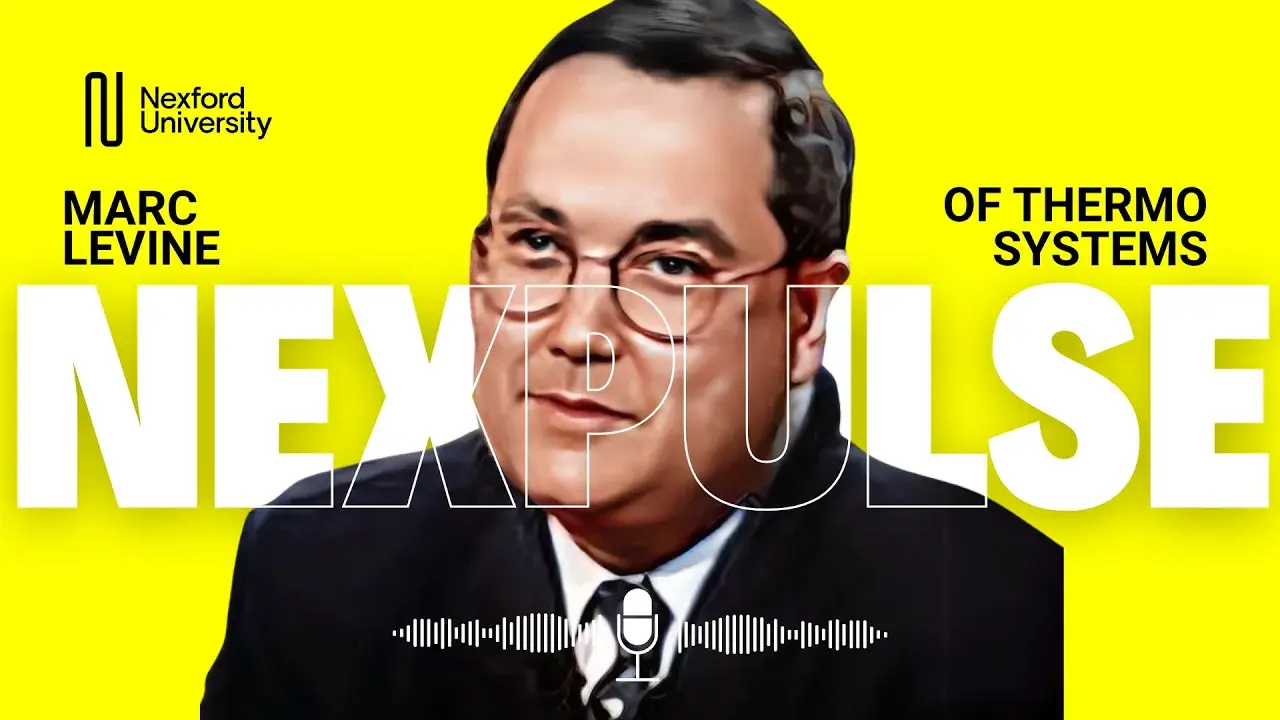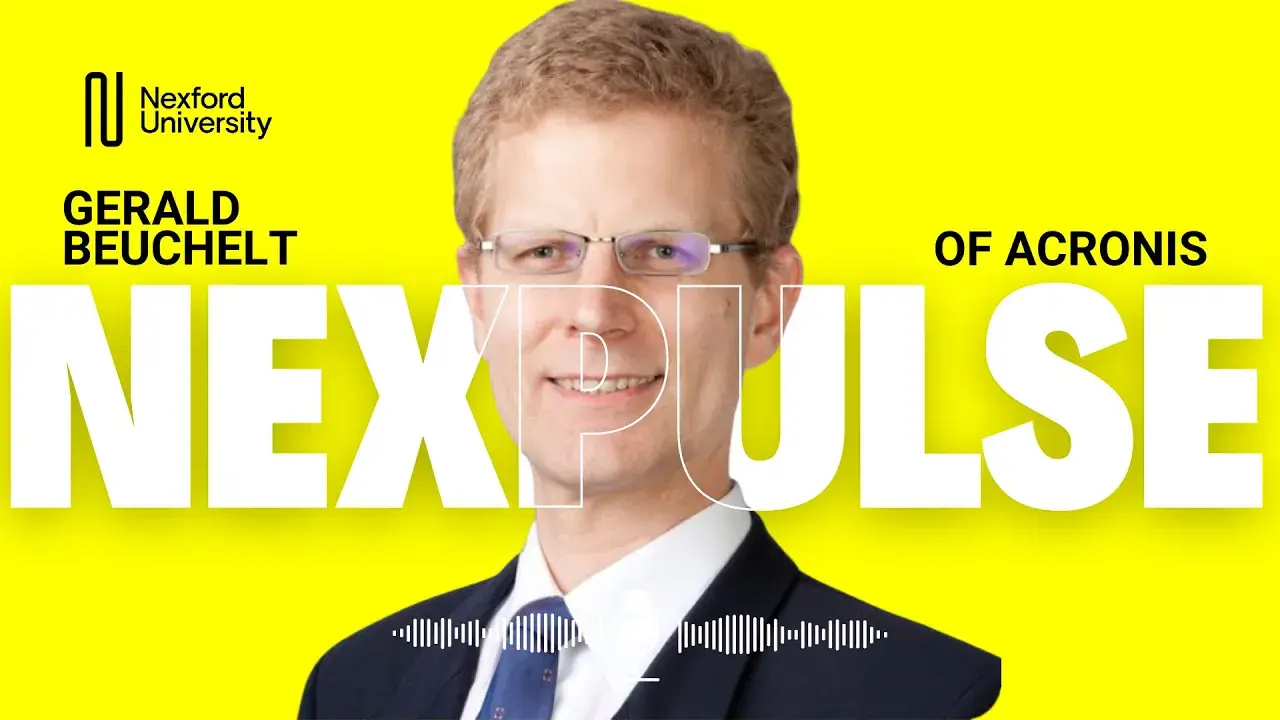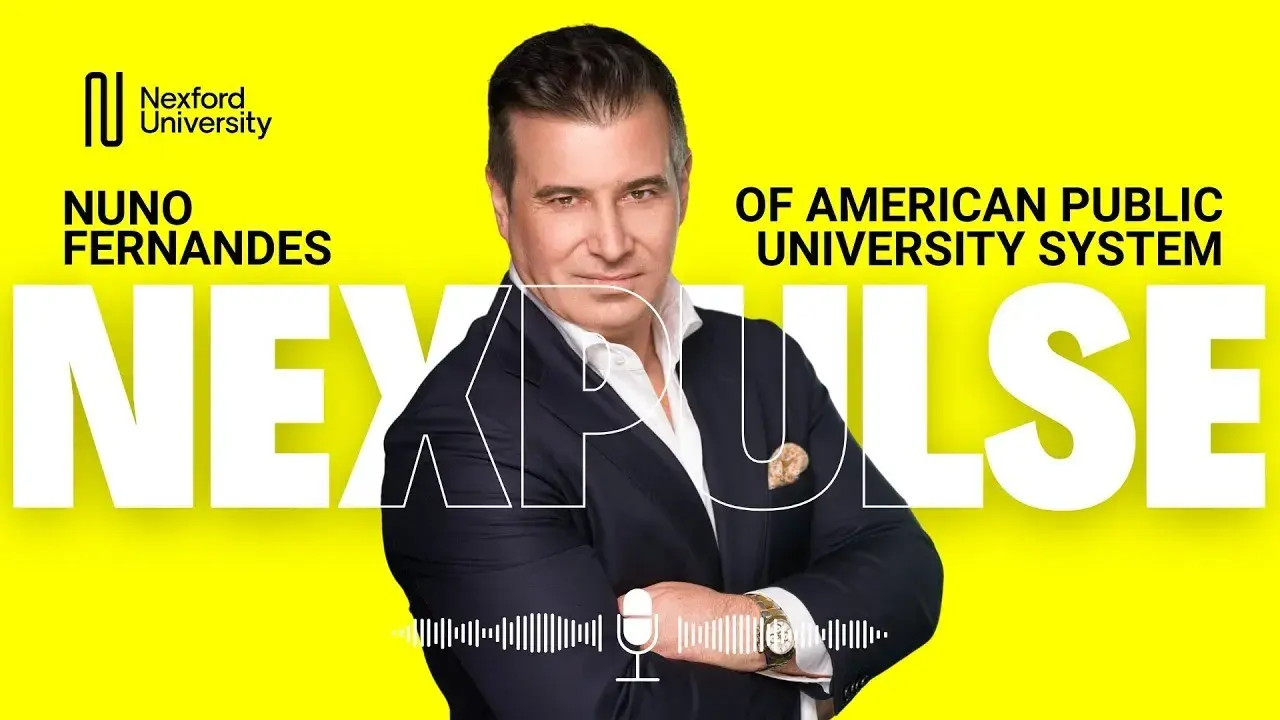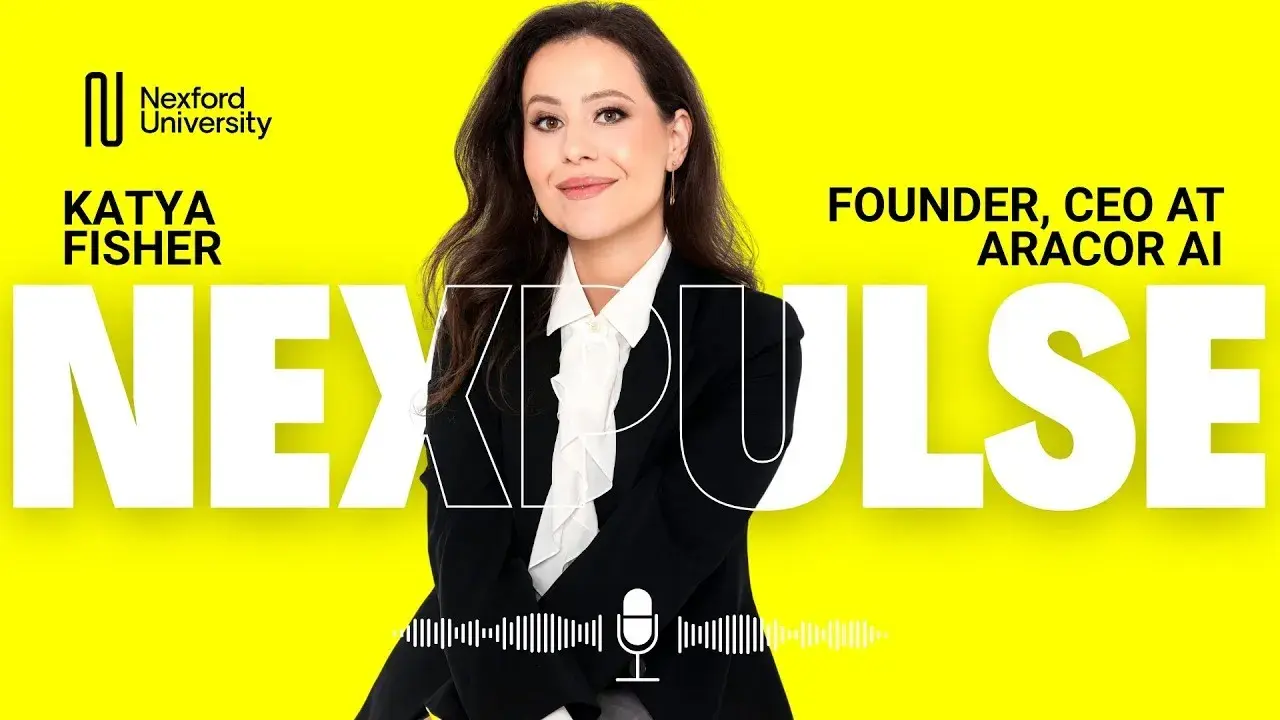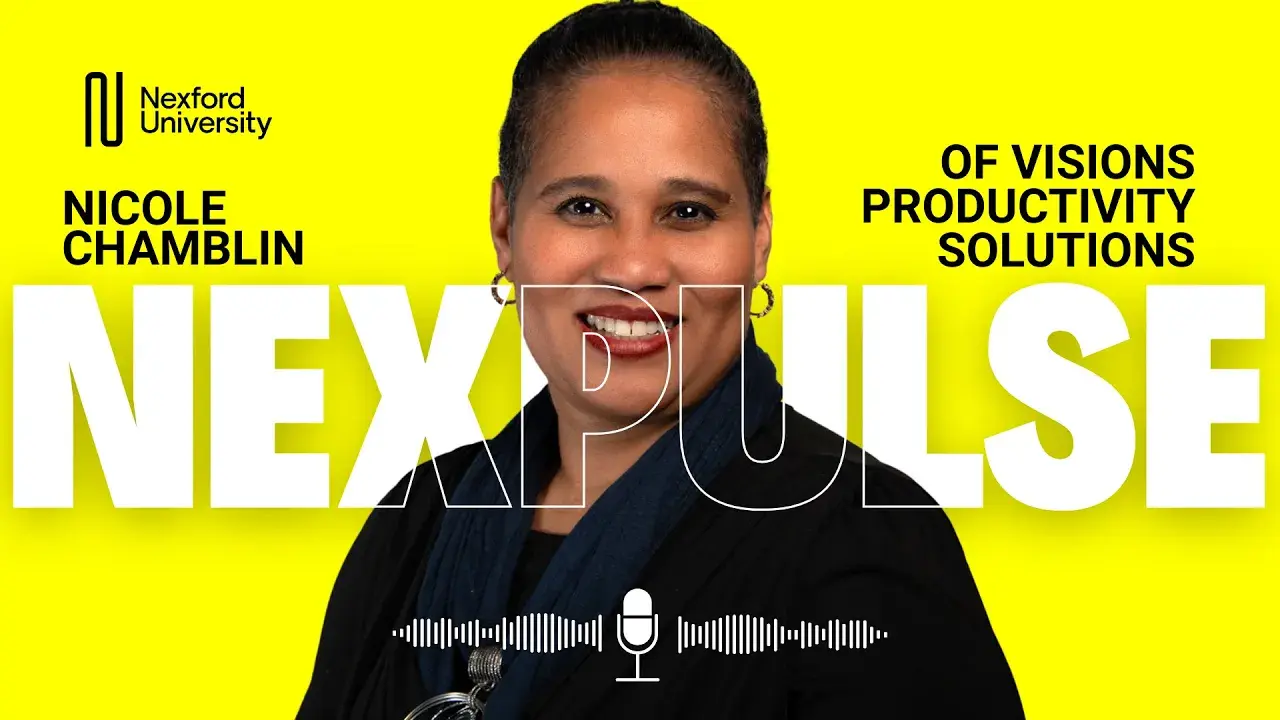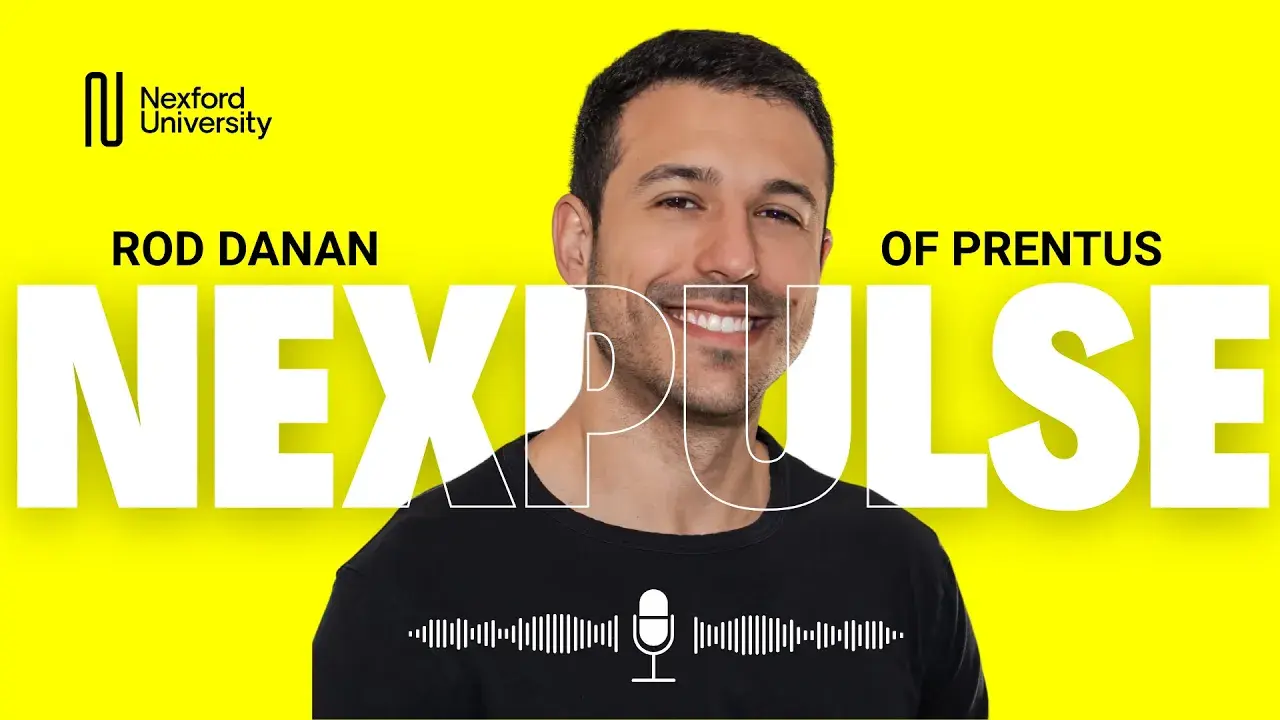Transcript
i don't know if you have about five
hours I could probably work that one out
But let's see Uh my background is in
human resources Today it's called people
and culture That's the newest
incarnation When I actually started the
field I was in personnel So we've gone
through a number of different changes
over the years Uh I've worked for all
size companies in human resources and
the staffing industry So I've been a
general manager of a large light
industrial staffing company I've had my
own company basically focused on real
estate property management and also
social media related that was helping
companies become employers of choice So
you get a small company that's up
against a really large well-known
company for talent and generally people
are more familiar with the larger
company So you got to level the playing
field So a lot of people ask me what the
connection is between the two That's it
Uh so I've been at this game now for
about 50 years Uh I've been at Thermos
Systems for about almost eight of those
years and uh we've been focused
primarily on doing engineering
[Music]
hiring It's critical Uh when I started
in human resources particularly on the
talent acquisition side which then was
just called recruiting uh we did things
a completely different way Uh we used
the phone a lot more than we do today Um
you have to get past the gatekeeper to
get the information if you're from a
staffing service Uh if you're a company
it was you answering the phone wondering
how the gatekeeper let the call through
Uh but really recruiting today from a
corporate side is really all about the
net Uh it's really come down to your
ability to use social media effectively
and to stay on top of all the changes
because it's a moving target Everything
that we do uh has to do with right now
LinkedIn and between you and I LinkedIn
isn't doing very well right now We're
noticing a fall off of Americans and
Western Europeans using the platform uh
they're electing to use Tik Tok more
Companies are a little nervous about
going there because of the Chinese
connection and uh we're trying to I know
a number of us trying to bring more
Americans and Western Europeans back
into the LinkedIn fold Um I think it's
possible because there's a lot of great
information that could be shared
particularly in the groups and I run
some groups on LinkedIn and we're having
some success Uh I think it's just a
matter of you know putting a little bit
more effort into it Uh we're using AI a
lot more than u even when it started Uh
we're really figuring it out in human
resources and we know we have to be
careful because it's very impersonalized
So we don't want to release ourselves
from the obligation to connect with
people and we also know that uh another
aspect of uh AI is that um you have to
be careful with the laws that are
associated You can't use it as a
selection tool So it's really a
productivity tool when you think about
it It helps you write a memo It helps
you write a some sort of a treatise if
you will Uh it helps you uh communicate
a little bit easier It's still your
thoughts but it puts it in a way that's
grammatically correct right syntax using
the right spelling Uh and then uh
perhaps it's good for research I find it
very very useful for research But even
with research you have to double check
because it's not always con So that's
the biggest change right now Got two
books on my shelf by an author who's
been doing a lot of writing on AI So I
know it's a particular hot button now
for my field Uh so this should stay on
top of Of course there are changes in
the way we interview because of going
back and forth from behavioral
interviewing to other forms of
interviewing and kind of coming back
into full circle Uh for me interviewing
is really a conversation with someone I
never tell anyone I'm interviewing them
because you really look for character
over skill Uh you want to find people
that are passionate motivated and uh
certainly the skills will be found out
uh during the process but it's really
about the fit and making sure that
people uh really join your organization
and work out well So these are the
things that are constantly changing Some
of the things are same old sameo but
there's always a nuance to the same old
sameo Some study that was done some
information that some scholar put out or
some expert came up with You got to keep
reading Uh I read constantly I stay on
top of what's
happening I think it's a combination of
a number of things I think they're
retrofitting Tik Tok to the job search
because they're so comfortable using it
You know LinkedIn has was never designed
to be a social network It was really
designed to be a business network We
used to say that Twitter was the world
Now it's X Uh LinkedIn was the office
and Facebook was the world Uh I think
that still applies So a lot of your more
recent generations haven't really
embraced LinkedIn They have a profile
there because career services tells them
to but you notice that they're devoid of
a picture Uh they never posted anything
and from when I talk to them they kind
of get in and get out So they haven't
discovered the benefits of the group
However in the groups and even when
you're looking to connect with people
you'll notice that most of the people
that are engaged are coming from Asia
Africa Eastern Europe uh the Middle East
Uh I asked them why that is and it's
well they're looking to really have the
opportunity to learn from Westerners as
well as to see if they can possibly find
a job in another country to get out of
the countries that they're in currently
And I've talked to LinkedIn about this
and you know they acknowledge that the
average LinkedIn user is only on about
17 hours a month And so that's not
really a great opportunity to meet a lot
of people and to have a lot of
discussions And uh people are also a
little tired of getting beat up by
recruiters on LinkedIn You know they're
constantly called by head hunters uh who
are looking for them They're taking
calls and emails and a lot of it is
almost to them spamming Um I think
that's part of it And the other thing
I've heard recently is that I know when
I started using LinkedIn people and I
still do when people call me I give them
my time You're saying that some people
that they call for information
interviews are not willing to give time
and actually are annoyed Uh so I think
we have to go back in time a little bit
to a time when people were a little bit
more civil more interested in developing
themselves further There's a lot of very
good information in those groups I know
in my group there's tremendous stuff and
they're not they're just not finding the
value in that because they're not
finding the value on being on a platform
And for employers we all need to worry
because right now there's no replacement
for that That's how we do most of our
recruiting That's how we do most of our
connecting with people The only
difference is when our people recruit at
at our company we don't recruit right in
people's faces We develop relationships
like people uh like my blog like these
appearances uh that I do on podcasts and
share uh so that people build up a level
of trust with the employer that maybe
you're not looking to hire me today but
if we get to know each other maybe
sometime later I'll approach you as a
candidate And that happens a lot I get
some beautiful messages in LinkedIn from
people saying "Mark you know your blog
posts are so helpful You know I've
called you before You've given me some
really great advice You you can't do
everything for today You got to do some
things for tomorrow." And I think if the
employer side starts to understand that
I don't know about the recruiters the
they're head hunters and they're they're
money focused but if the average human
resources recruiter does more to help
the applicant community that's social
responsibility You're uplifting people
have a better feeling about your
organization because your organization
is letting you have the time to help
these people You're promoting your
industry and you're also promoting
learning and development So I think
everybody here needs to take a different
approach and we've got to save LinkedIn
We really
do First of all since it's your audience
I want to congratulate them because they
can teach people in the West a lot Uh
they are really on top of LinkedIn I'm
very impressed I really am Unfortunately
the barrier to all that is what's going
on in immigration Uh you know the rules
are changing They're tightening up Uh
it's very hard for employers to consider
people with visas You know it's almost
like a uh what's the best word I could
put it Like a game of roulette Uh you
don't know where each situation is going
to land Uh it could be costly it could
be timeconuming You can come up with
nothing in terms of hiring the people Uh
you know there's some other factors that
are added to that now because of the
climate You know hire America first or
whatever uh that's not us but we are
bound and constricted by the laws of the
country making it much more difficult
even in Europe when we're hiring you
know we have to make sure they have
shenzen visas and things like that so
they can go from country to country uh
the immigration picture makes it tough I
feel bad for folks because they're
coming over here and studying and they
want to stay uh yet once they're out of
school now it becomes a whole different
ballgame with they're on a visa you know
they don't have a a green card or they
don't have a uh a citizenship and
companies really have to factor that
into you know can they do they want to
go ahead and do all these things Can
they wait Uh you know I think the best
thing that they can do is to continue
doing what they're doing on LinkedIn
because in fact it is the main platform
still to connect with people Uh I know
over in Europe I think they use
something called Zing which is the
equivalent So they could look at that if
they want jobs in Europe Um I think it
comes down to them uh what they're
presenting as Um they have to have a
powerful online presence I think that's
very important So they must make sure
that their profile on LinkedIn is
completely a uh it's got to be truthful
It's got to be well designed and and
produced you know with spelling and
grammar and and and and syntax and all
that sort of thing Um you want to make
sure that there's a photo and that it's
a photo very uh professional Sometimes I
see some that are not you know not the
photo that you put on Facebook or
elsewhere is not going to be the proper
photo all the time for LinkedIn Uh they
have to develop in demand skills They
have to know what the skill sets are
that companies are looking for depending
on where they are Now for example in our
field uh in the United States we hire
people with PLC and HMI backgrounds uh
programmable logic controllers human
machine inter machine interfaces Uh most
of the most of the stuff over here is
related to Rockwell Automation Uh it's
called the Allen Bradley line Uh in
Europe it's completely different It's
Seammens which we do a little bit with
So you got to know what the employers
geographically are looking for and the
skill sets they need and uh and make
sure that you go and find those skill
sets and get up to speed You don't want
to fall behind like 1999 with Cobalt
with the folks working on Y2K That's not
going to be a good thing A lot of those
people weren't prepping for what came
next which was object-oriented
programming They made a lot of money on
Y2K and then they quickly got out of the
business Uh but those people that got
object-oriented programming went to work
with HTML and all those kinds of things
Uh they should have a strong personal
brand which I think is very important So
they should have some maybe a blog if
they can on connected to LinkedIn maybe
some videos maybe some examples of the
work they do Uh so that people see them
as someone that's
uh professional and u somebody worthy of
credibility I guess that's the word I'm
looking for Uh they have to network like
a pro You know you got to be careful
when you reach out to somebody and
you're asking them for your time Uh
again it can't be in your face It's got
to be very respectful Something like
"Hey I just graduated college I got a
degree in such and such I'm new to this
I really would love to spend 10 or 15
minutes with you." Kind of understanding
how things go right now in the
employment world Uh most nice people
will give them that time But if you
start off by "Hi I'm such and such Do
you have a job for me?" And I get those
Uh if you're blown back it's like "Well
my first reaction is no I don't even
know who I'm considering." So I think
you start off with a very respectful
reasonable approach uh and then see if
you can start to build a little bit of a
connection with that individual Uh they
should showcase their real world work Uh
they should be prepared to show to prove
and to show examples of the work they
did that relates to what it is that the
company that's considering them is
looking for So lately we've been hiring
or looking for people in in financial uh
DNA and uh a lot of those people haven't
really been truthful with us about model
design You have to develop forecast
modeling and things like that When we
ask them for an example they send it to
us and it's it's below par So they
should really have something to show
that they can do the things they say
they can do I think they
probably want to uh focus on showing
initiative authenticity and adaptability
in all their discussions So those are
the recommendations I think I would have
I know he gave them a lot Hopefully they
could slow me down to 33 and a third and
instead of 78 and kind of take it all
in I think that's very hard to predict
because there's a lot of moving parts
right now you know the generational
changes from one generation to the next
seem to be really diametrically opposed
Uh I think people are still finding
their way and they're still dealing with
people that are a generation or two
behind them in making the employment
decisions Uh which I think makes it a
struggle to try to get everybody
together and people are doing things one
way and they're doing things a different
way um trying to bring the parties
together and it's hard to find people on
Tik Tok when you're on LinkedIn looking
for people So I think that all has to
play out Um I I I think that's big the
biggest change I mean will a AI make
much more of a difference Again there
are those restrictions I don't know how
those change If anything I think they're
going to tighten up because you know
that you could you could be very
disreputable using those tools So there
may be more laws is case laws haven't
yet been tested as to what is the
appropriate use of this thing and then
what comes after AI we we have no idea
you know there are a lot of various
technologies for recruiting that are out
there um I always tell this to the
people trying to sell them to us because
they're extremely expensive human
resource departments don't get
tremendous amount of money and the
monies that we get we have to spend
wisely so we can't invest tons of money
in one particular type of software and
live or die by it So some of these
things are utilized more than others
There's constant changes People are
looking at one and the next project that
comes out from another company improves
the one that's already out there So you
have to decide whether you want to
invest in this realizing that their
competitor is going to come out with
something better and yet you're in a
contract for a year two or three with
this particular one I think what that
means is that people in human resources
are going to try as best they can to
stick to the basics and make them work
rather than to go for the brightest new
shiny object that comes out Um and I
think it's a deliberative process
because again you're bound by the laws
You also don't want to hurt your
employer brand You know if AI did
everything people will pick up on that
right away We should never ever send
anything out uh through AI without
proofing it and without adding our
personalities to it You know don't send
it out without mentioning the person's
name Don't send it out without maybe
putting in uh you know some information
that lets them know that they're dealing
with a fellow human being rather than a
computer Uh so these are all the
challenges that we have Uh I think that
u the change is going to be faster in
what's coming out than in what is
adapted to
Well I think that in order for people to
stand out they have to really know
themselves Uh they really should
practice interviewing uh in front of
someone in front of a mirror as they
used to say even better than nothing Uh
to really read over and over again their
resume so that as I always call it the
words and music go together They don't
realize and they should that most
employers will lay their resume up
against their LinkedIn profile And there
are many times that they blow that
because they haven't made the changes to
balance them out And people will say
"He's got a job on here that he's
doesn't even have on his or her resume."
Uh so these are things that you kind of
kick yourself uh by not paying attention
to It's like anything else the the
devils are in the details and the
details are what employers are looking
for You know sometimes you go to a
Facebook page of a candidate and you see
some really really horrible things on
there You know uh things that are not
appropriate for the workplace Uh I think
that's the biggest thing that people be
able to do In other words control what
you can control And these are things you
can control Yes it takes a little bit
more work It also takes work to write a
cover letter and produce a resume that
matches the position you're applying for
People don't do that I get I get resumes
for engineers that say "Yes I'm looking
for a job as an insurance salesman."
It's like "Why are you setting that for
an engineering job Now you're telling us
you don't have the passion for that job
You've got to make sure that it's like
if you watched a court drama on TV What
happens The attorney stands up before
the jury He tells them what he's going
to prove or she's going to prove and
then they present their case Well that's
what a resume is A resume an application
they're just marketing documents for all
practical purposes They're designed just
to get our attention to want to go
further And if it comes in DOA when the
resume is different than the LinkedIn
and the cover letter doesn't really back
anything up you have a major case And as
a result the employer now as we call it
in our industry has seen red flags go up
saying that h something isn't right here
and it's always easier to move on to the
next candidate who doesn't have those
issues So take care of business where
you can take care of it and then be your
best self Don't try to be someone else
Don't try to be nervous You're just
having a conversation with another
fellow human being We're not judging you
We're only determining whether or not
you're qualified to do the job We're not
saying you're a good person a bad person
indifferent We're just saying you have
this skill you don't have enough of that
skill Uh that's really what we're
looking for At the end of the day we
might want to go out to dinner with you
because you're a nice person but you
didn't get the job because you didn't
have the PowerBI skills or whatever it
is that we happen to be looking for for
that position So that's what the advice
would be from me
Subscribe to our newsletter
Don't miss out on our latest updates.
Nexford Staff
Blog author
Unlock Your Potential: Explore Our Programs
Invest in yourself and your future. Discover our range of degrees, courses, and certificates to achieve your goal

